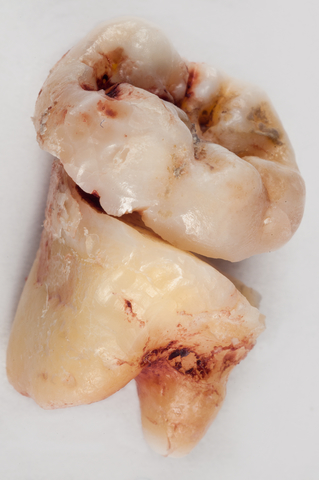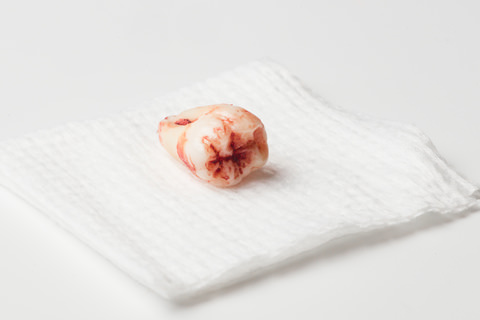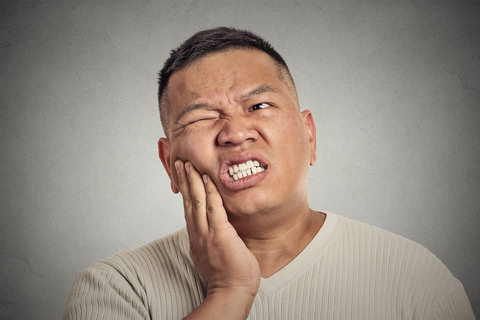Wisdom Teeth Removal: What Can You Expect?
Wisdom teeth removal can be a daunting experience. Stress levels rise, and the pain leading up to surgery can be extreme!
What can help during this period of intense pressure?
Knowledge can!
As the late and great Jimi Hendrix once said: “Knowledge speaks, and wisdom listens”.
So, whether you’re a teenager or in your 30’s or 40’s, understanding what happens before, during and after wisdom teeth removal can be a huge relief.
Here are the most pressing concerns patients have about wisdom teeth removal.
Jump to Contents
- How are Wisdom Teeth Removed?
- Types of Anaesthetic
- Wisdom Tooth Procedure
- After Removing Your Wisdom Teeth
- Wisdom Teeth and Health Insurance
- Is Wisdom Teeth Removal Covered by Medicare?
- What are the Costs in Removing Wisdom Teeth?
- What is Emergency Wisdom Tooth Removal?
- Temporomandibular Joint Disorder (TMJ)
- Can Removing Wisdom Teeth Change the Shape of Your Face?
- How Long does Wisdom Teeth Surgery Take?
How are Wisdom Teeth Removed?
Wisdom tooth extraction is a surgical procedure performed by a dentist or oral surgeon to remove one or more of your wisdom teeth.
Before the procedure begins, you will be given anaesthesia which helps with pain so you don’t feel a thing when your wisdom tooth is extracted.
Local
This consists of numbing injections near the extraction site, leaving you awake but unable to feel pain.
Your dentist will usually use this type of anaesthetic if your wisdom teeth are removed in the dentist chair.
Sedation
Administered intravenously, it will leave you semi-conscious but relaxed and free of pain.
A combination of sedation and local anaesthetic can be used by your dentist, providing extra numbing effect just in case.
General
Inhalation medication that makes you sleep during the procedure.
The surgical team monitors your breathing, blood pressure, and temperature.
The type of anaesthetic you receive will depend on your comfort level and the anticipated complexity of the wisdom tooth removal.
Wisdom Tooth Procedure
When the procedure begins, your dentist will carefully make an incision in the gum, which exposes the tooth making it easily accessible for it to be removed.
They may divide the tooth into pieces (as seen in the photo below) if removal is easier that way.
This option usually decreases trauma to the gum area that surrounds your wisdom tooth.
Remember, the less trauma there is the better you’ll feel overall.
After cleaning debris and infection from the removal site, they will stitch the incision and apply gauze over the extraction site.
This is to stop any bleeding and help a blood clot form.
After the extraction is complete, you will be given time to recover before being sent home.
- Resting for the next 48 hours.
- Your dentist or surgeon will tell you to avoid any strenuous activities. The reason why this is so important is that you could lose the blood clot and the healing process.
- Drink plenty of water
- Avoiding hot, carbonated, or alcoholic beverages for at least 48 hours.
- Eating soft foods like yoghurt, or warm broth during the first 24 hours. You should only switch to semi-soft foods when you can eat them without pain.
- Avoiding spicy, hot, or chewy foods that could irritate the treatment area
Pain can be managed with an over-the-counter pain reliever or medication prescribed by your oral surgeon or doctor.
Between doses, you can hold a cold pack against your jaw to numb the area and make yourself more comfortable. This worked well for me when I had my wisdom teeth removed.
If pain and swelling fail to subside during recovery, contact your dentist immediately.
Wisdom Teeth and Health Insurance
In Australia, only private Health insurance will cover most of the costs of wisdom teeth removal.
How much you have to pay for the surgery will depend on your private dental health insurance coverage and their limits.
For more information about health insurance relating to wisdom teeth, visit ombudsman.gov.au.
Is Wisdom Teeth Removal Covered by Medicare?
Medicare coverage is limited when it comes to complex dental procedures.
Unless you have private medical insurance that covers the surgery, you will have to pay most of the costs of wisdom teeth removal yourself.
A good website that outlines both private and Medicare limits and restrictions is servicesaustralia.gov.au.
- Number of teeth being removed (e.g. one vs all four)
- How complicated the extraction will be
- Whether you have dental health insurance coverage
- Type of dentist required (regular dentist vs. oral surgeon)
- Type of anaesthesia used (local vs sedation or general)
What is Emergency Wisdom Tooth Removal?
Erupted or impacted wisdom teeth can cause a dental emergency.
Experiencing acute physical symptoms such as swelling and a fever can lead you to a dentist ASAP!
An emergency extraction is the same as a scheduled procedure, except that the cost is likely to be higher.
This will depend if your dentist charges emergency fees.
Can Wisdom Teeth Removal Correct TMJ (Temporomandibular Joint) Disorder?
Firstly, what a mouth full!
For the people out there who don’t know what temporomandibular joint disorder is, it’s basically a broad term relating to pain in your jaw and muscles that connect your jaw to the skull (temporomandibular joint).
People with TMJ disorder sometimes claim their symptoms disappeared after the removal of their impacted wisdom teeth.
These symptoms include:
- Pain and popping
- Clicking
- Locking of the jaw
Contrary to popular belief, wisdom teeth removal doesn’t correct TMJ, nor does a case of impacted wisdom teeth cause it in the first place.
It is also thought that elimination of their discomfort may have coincided with the procedure.
Anyone experiencing TMJ symptoms should be seen by an oral surgeon.
Your surgeon can then determine why your jaw is showing these symptoms and recommend an appropriate course of treatment.
Can Removing Wisdom Teeth Change the Shape of Your Face?
Many people who need their wisdom teeth removed express concern that the procedure will have negative effects, namely a change in the shape of their face.
The truth is that wisdom teeth removal is unlikely to affect your facial features.
Once all your swelling subsides, you will most likely find that your face returns to its previous contours.
At the very most, you may notice that you have some extra facial definition.
Some models deliberately undergo wisdom teeth removal for this reason. Although requesting such a procedure for aesthetic purposes is not recommended.
Nerve Damage
It is worth noting that if your wisdom teeth are very close to the nerve in your jaw, most dentists will advise you to visit an oral surgeon or specialist.
If the inferior alveolar nerve that runs off your trigeminal nerve (No.3 below) is damaged, it can cause you to experience loss of feeling in your teeth, lips and facial tissue.
Your oral surgeon will run through all the risks before any procedure that is carried out so that you can make an informed decision moving forward.
How Long Does Wisdom Teeth Surgery Take?
Wisdom teeth extraction can be done to treat one to four teeth. The actual length of time will vary accordingly.
Once your mouth is prepared for dental surgery, extracting all four of your wisdom teeth typically takes around one hour.
If you’ve had only local anaesthetic, you will be able to go home soon after the procedure ends.
Day surgery with a general anaesthetic will usually take longer for you to recover.
It is wise to make sure you have someone to support you get home after any dental procedure that involves anaesthetic.
Conclusion
Wisdom teeth removal is a general procedure that will in many cases eliminate pain in your mouth and get you back on track!
Seeking out an experienced dentist or oral surgeon is definitely a must when going down the path of removing those wisdom teeth of yours.
Speaking with friends and family will help you, as well as jumping online; this can put you in a better position to make an informed decision.
Have you recently starting getting pain or discomfort in the back of your mouth? Think it could be your wisdom teeth?
leave a comment below if you have a question relating to wisdom teeth or their removal.
By Dr. V
Created at February 06, 2018, Updated at January 25, 2025
















